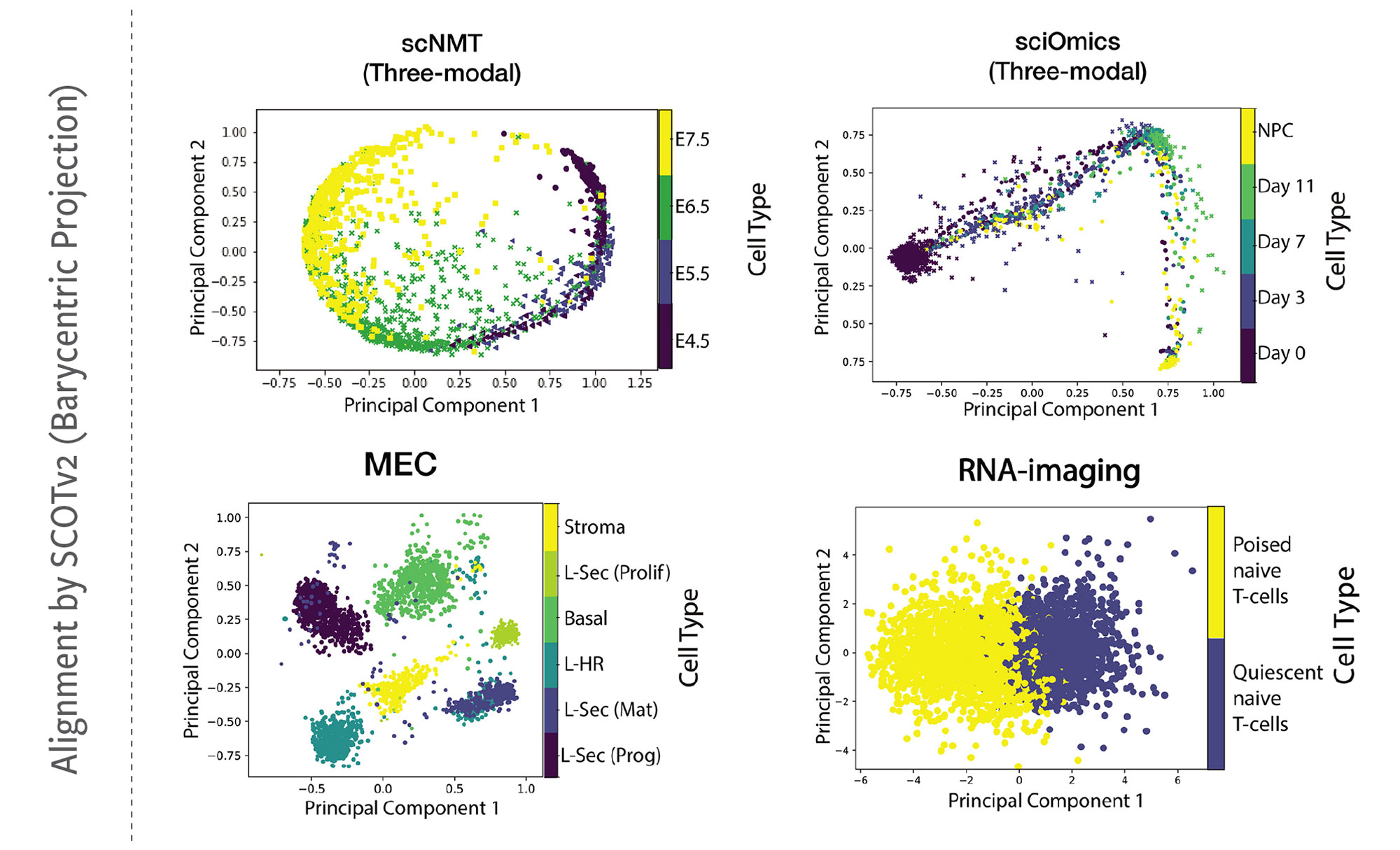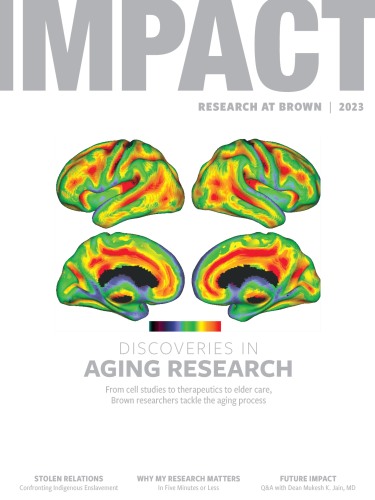Researchers Prepare for a Computational Revolution
NIH awards Brown $10.8 million to expand data-informed research to fight human disease.
NIH awards Brown $10.8 million to expand data-informed research to fight human disease.
Five years after an $11.5 million federal grant launched the COBRE Center for Computational Biology of Human Disease at Brown University, the National Institutes of Health (NIH) has awarded $10.8 million in new funds to Brown to build on the center’s early success.

The center—a federal Center of Biomedical Research Excellence funded by the NIH’s National Institute of General Medical Sciences—uses sophisticated computer analyses to advance human disease research.
Director David Rand, a professor of biology at Brown, said the renewal funds will enhance the center’s research infrastructure, strengthen collabo- ration among scientists, and support four new research projects. Rand said a computational revolution is happening in the biomedical sciences, as researchers need computer analyses to help them make sense of massive amounts of available data.
“Everyone has large data sets and needs to convert these into useful information, and we aim to help people achieve that goal,” said Rand. “Even those working in wet labs or clinics who don’t use computers in their daily work will need assistance analyzing complex data sets. The center brings together researchers in the lab and clinic with exceptionally skilled and creative data scientists to turn data into information.”
Providing that service is the center’s Computational Biology Core (CBC)—a group of four scientists, data analysts, and software engineers who support data-intensive research. In the first year of the new five-year award, two researchers graduated from COBRE support after receiving major grants from the NIH and the National Science Foundation (NSF). George Lisi, assistant professor of molecular biology, cell biology, and biochemis- try, received an NSF CAREER award and an NIH R01. Ritambhara Singh, assistant professor of computer science, received an NIH R35 Genomic Innovator Award. These awards were catalyzed by the initial COBRE support and will allow Lisi and Singh to pursue research on human disease for the next five years.
“ Everyone has large data sets and needs to convert these into useful information, and we aim to help people achieve that goal. ”
Funds from the renewal grant now support the research of two new junior faculty investigators who have replaced Lisi and Singh in the COBRE program: Roberta DeVito, assistant professor of biostatistics and data science, and Sanghyun Lee, assistant professor of molecular microbiology and immunology. This funding will help them earn additional, longer-term funding for their work.
Funds from the renewal grant now support the research of two new junior faculty investigators who have replaced Lisi and Singh in the COBRE program: Roberta DeVito, assistant professor of biostatistics and data science, and Sanghyun Lee, assistant professor of molecular microbiology and immunology. This funding will help them earn additional, longer-term funding for their work.
